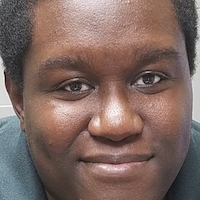27 Feb 2018 Project 21’s Danner: Friends, Family are “Boots on the Ground” to Prevent Gun Violence
 It’s clear the shooter in Parkland, Florida is mentally unstable. There’s also no question it isn’t in anyone’s best interest for such people to have an ability to purchase firearms.
It’s clear the shooter in Parkland, Florida is mentally unstable. There’s also no question it isn’t in anyone’s best interest for such people to have an ability to purchase firearms.
This feeling of responsibility is evident among the strongest of Second Amendment advocates.
At the recent Conservative Political Action Conference, held in the wake of the Parkland shootings, National Rifle Association CEO Wayne LaPierre noted that the NRA helped set up a system for background checks of gun buyers in general, and has further supported the addition of mental health records to the federal database used for such checks.
LaPierre noted, however, that new laws cannot provide security and peace of mind all by themselves. Criticizing those who demand that government simply “do something,” he pointed out:
They want to sweep right under the carpet the failure of school security, the failure of family, the failure of America’s mental health system and even the unbelievable — the failure of the FBI. They fantasize about more laws stopping what other laws failed to stop. The truth is laws succeed only when people obey them.
 Project 21 member Jerome Danner understands this as well, and he offers some advice on how to address the problem in a new commentary published by The Federalist.
Project 21 member Jerome Danner understands this as well, and he offers some advice on how to address the problem in a new commentary published by The Federalist.
In “Friends and Family Need to Get Guns Away from Disturbed People,” Jerome focused on the well-meaning disconnect among the people in Parkland who “passed the information off and assumed that was the end of it.” Instead, “family and friends [should] notice erratic and threatening behavior of any individual who is linked to them and look into that person’s connection to any weaponry.”
Jerome continued:
Now is the time for neighbors, friends and family to be more actively involved in creating a barrier between disturbed individuals and firearms…
We, the citizens of America, need to govern our own family and neighborhood affairs rather than assuming government can or will entirely fulfill that function for us. Our action… is the first line of defense, and – in Florida – this defense was down. Obviously, law enforcement and social agencies have gaps in attention and treatment and they always will. Databases would be helpful, but stronger communities of connected neighbors could also assist with more “boots on the ground.”
We should figure out ways to take care of our own ourselves. No one should just tell law enforcement or mental health professionals about the perpetrator and believe his job is done. If a disturbed person we know has any guns or possible access to them, then we all should make it our duty to make sure these weapons are secure from their potential outbreak. Of course, this could not fix the problem entirely, but it would add another much-needed layer of protection for the innocent.
To read Jerome’s entire commentary, click here.



